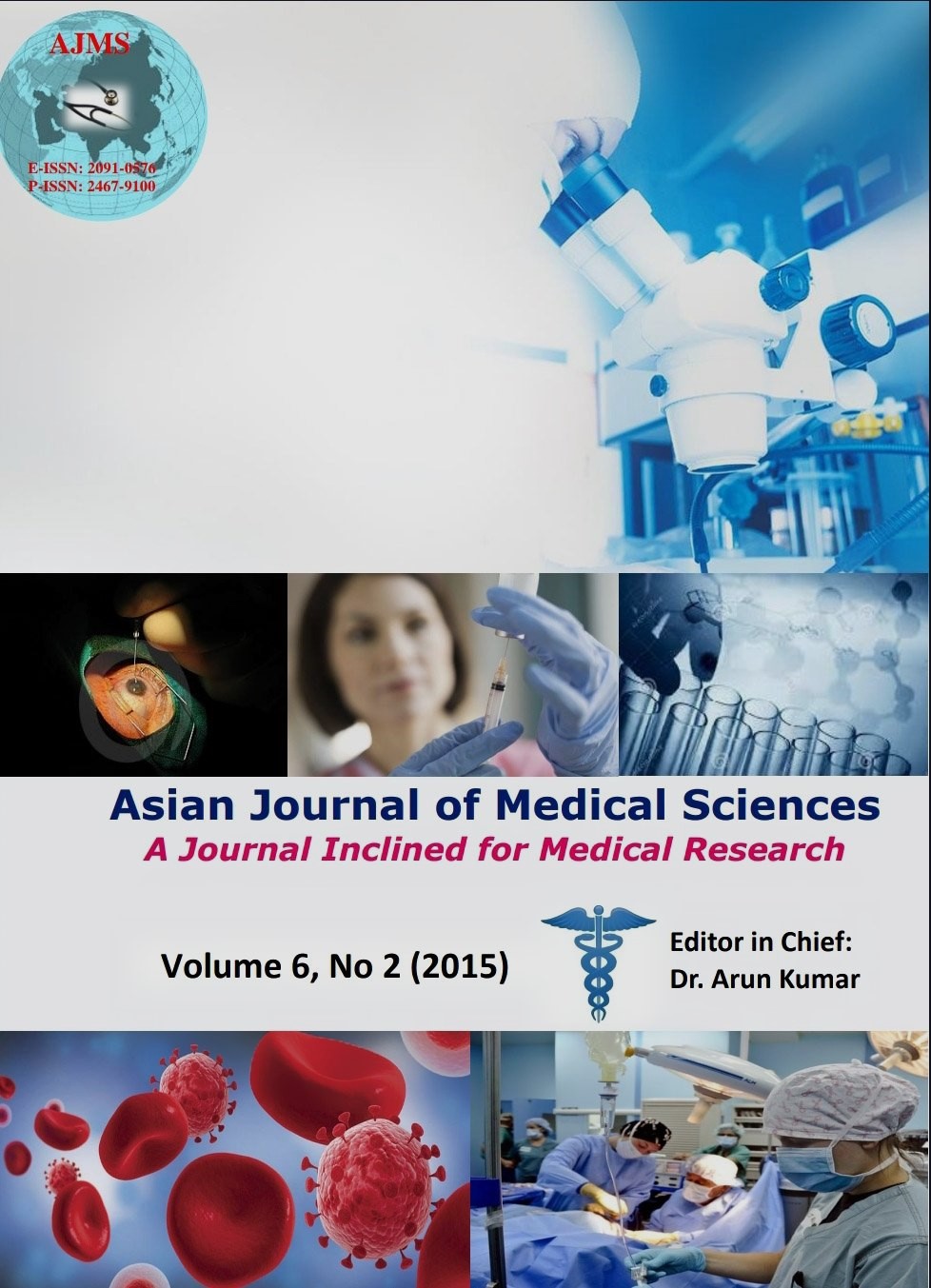Free PSA: A better molecular marker than total PSA for breast cancer
Keywords:
Free PSA, breast cancer, Total PSAAbstract
Serum total PSA (prostate specific antigen) has been considered since some time for diagnosis or prognosis of breast cancer. PSA is present both as free and complexed form. Many researchers have shown total PSA increases in all forms of breast disease, whether cancerous or benign lesions. Few scientists have demonstrated that the free form of PSA is the predominant form in breast cancer.1,2 Also the observation that there is a marginal reduction in total PSA after surgery in comparison to a remarkable decrease in free PSA is a strong indicator that a large portion of total PSA is produced by normal tissue and that free PSA is produced by breast tumors.3,4,5 Moreover free PSA as the predominant form was found to be highly specific for breast cancer when compared to benign and normal tissues.3 In India, Dash et al.,(2011) in their study in Indian population observed similar results using total and free PSA in patients of breast tumors 5 augmenting its role as a prognostic marker.
With a heterogeneous study population in India where breast cancer is commonly encountered, population based studies are essential to study the molecular forms of PSA with respect to the disease process like relapse or metastasis and therefore with future treatment.
DOI: http://dx.doi.org/10.3126/ajms.v6i2.11110
Asian Journal of Medical Sciences Vol.6(2) 2015 129
Downloads
Downloads
Published
How to Cite
Issue
Section
License
Authors who publish with this journal agree to the following terms:
- The journal holds copyright and publishes the work under a Creative Commons CC-BY-NC license that permits use, distribution and reprduction in any medium, provided the original work is properly cited and is not used for commercial purposes. The journal should be recognised as the original publisher of this work.
- Authors are able to enter into separate, additional contractual arrangements for the non-exclusive distribution of the journal's published version of the work (e.g., post it to an institutional repository or publish it in a book), with an acknowledgement of its initial publication in this journal.
- Authors are permitted and encouraged to post their work online (e.g., in institutional repositories or on their website) prior to and during the submission process, as it can lead to productive exchanges, as well as earlier and greater citation of published work (See The Effect of Open Access).




